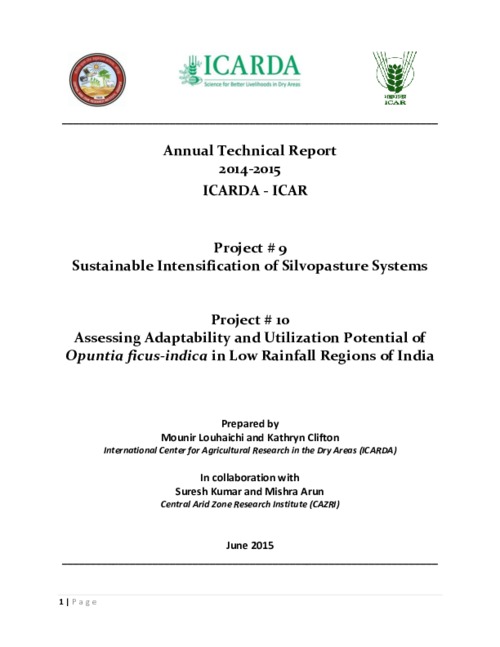Resource information
India holds a substantial rangeland area, most of which is in the state of Rajasthan. The livestock sector is vital for the rural poor in the region and it is the main source of income. Advanced degradation of rangelands due to lack of proper management tools and the communal land tenure regime are leading to an increasing threat of desertification. Lack of adequate nutrition (due to overgrazed community rangelands), inappropriate management practices and restricted access to health services are the major causes of low productivity of small ruminants. Very little attention has been given to dryland areas for research on feeding and management of small ruminants for effective economic rearing.
Interventions that focus on community rangelands and feed and fodder issues could have pro-poor effects because small ruminants’ keepers are heavily dependent on natural resources for grazing and watering their animals. However, these resources are declining in condition and increasingly subject to access restrictions. A critical understanding of and need for evolving appropriate management systems to improve the productivity of small ruminants is imminent for drylands.
Under the umbrella of the ICAR-ICARDA collaborative research program several new projects were approved for the period 2014-2017. Among them two projects related to community based rangeland management and utilization potential of cactus pear (Opuntia ficus indica) in low rainfall regions of India by reducing the feed gap and scarcity that many livestock farmers are facing. The main purpose of these projects is to improve the livelihood of small holder farmers in the drylands of India improve fodder availability and. Such an effort has the possibility to reduce poverty and increase food security. Adequate nutrition and management practices are some of the leading causes for low livestock productivity. The diversification of crops aims to improve animal nutrition. The project also teaches sound management practices. Both the promotion of Opuntia ficus indica and sustainable silvopasture practices show promise in project sites. The annual report will review the current progress to date for these efforts. As the MOA was signed on the last day of 2014 (Appendix 1), the report reflects activities that took place since then.


